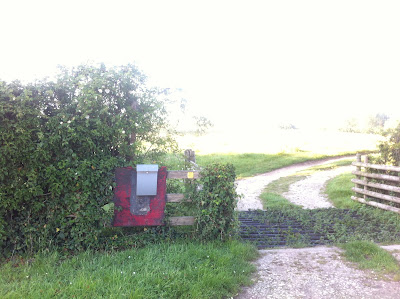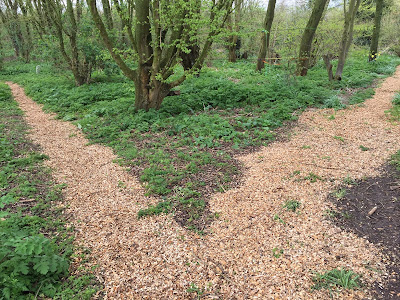...is the first instruction for one of the 'recipes' in this 1981 recipe book.
I learned about the dangers of smoking when I was 8 years old, back in the very early 1960's and living in Hong Kong. No, I was not smoking then, it was a topic covered at Junior School. No doubt we were given a lot of information, but my takeaway knowledge was that you could end up having your leg amputated.
My favourite aunt and uncle, who lived in Lincolnshire, were both fairly heavy smokers.
I immediately wrote them a very strong letter urging them to stop, telling them about how they could lose a leg, at the very least! I have a whole cache of the letters I sent to them, unfortunately that one isn't among them.
Moving on, this particular book, although only 43 years old, is a great example of how, for me, an ordinary book can be transformed into something very special. A previous owner - someone by the name of 'Lettice', judging by the faint name written on the flyleaf, has filled the baking section of the book with scribbles and notes.
Whenever I come across a book like this I know that I have found a treasure. I get a frisson of excitement. A very ordinary book transformed and personalised, recipes tried and tested, recipes adjusted, timings altered.
A Cut and Come Again Cake got a definite thumbs down, although it looks as though it had been tried out a couple of times and adjustments noted. NOT to be repeated!! was the verdict.
Mary's Gooey Chocolate Cake was made for D&T and was awarded a v,good. Can be repeated.
Very good (Tony liked it!!) was the verdict on Sultana Cake, along with a note to try it with self raising wholewheat flour.
There are plenty of other notes, but the one which made me smile the most was:
Not to be repeated: NASTY!
The whole recipe has a line drawn through to make sure it wouldn't be tried again. I notice that the baking time had +10 mins +10 mins + 10 mins added on to it.
Poor OLD NANNY'S ORKNEY BROWNIE, definitely not a hit with Lettice, then.
Right, back to this cigarette recipe...to remove rings on polished wood, the book advised:















.jpg)




















